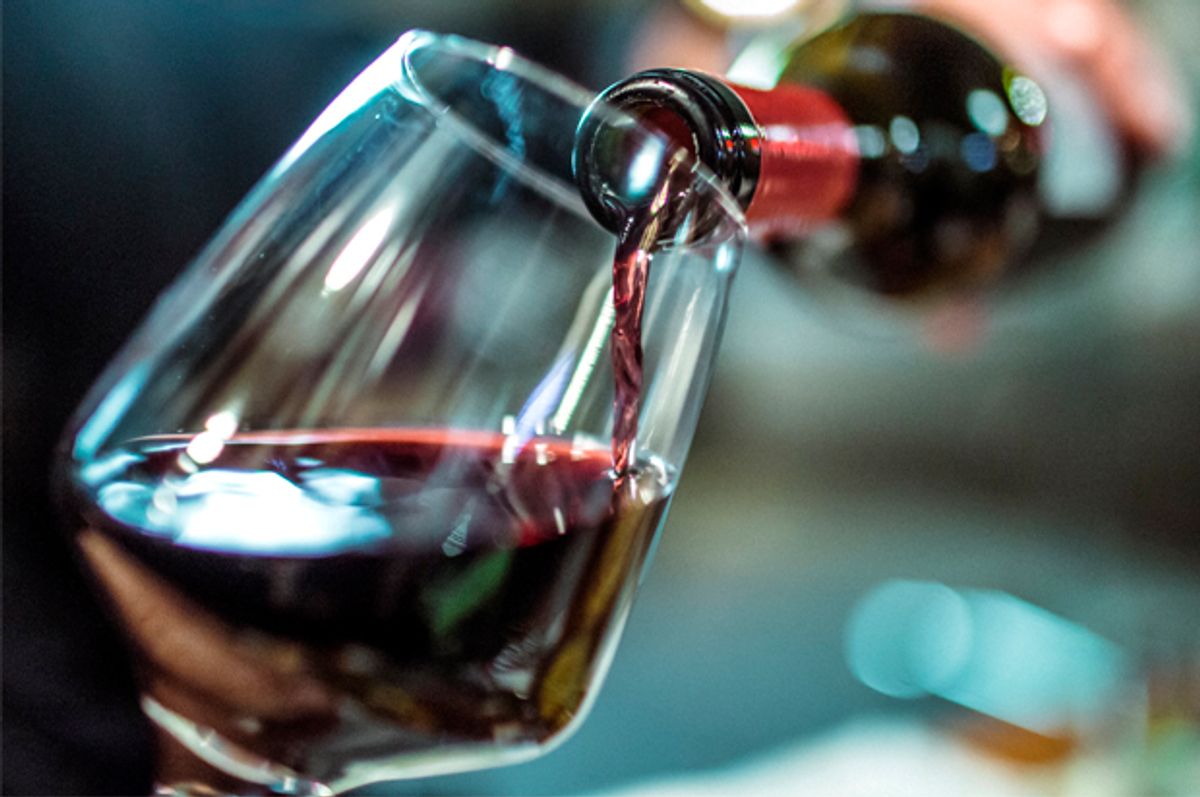According to a study that recently made me very jealous, roughly 23 percent of people may be resistant to hangovers. For the other 77 percent of us, well, at least there's black coffee, next-day bagel sandwiches, and lots of aspirin.
But maybe there's a better way, I thought to myself last Saturday, as I awoke later than I wanted to, the edges of a headache creeping in while I sluggishly made my way—all 15 feet—to my kitchen, for a pot of coffee. (This, from 2 1/2 glasses of red wine.)
So — after a long nap, an even longer shower, and more bacon-egg-and-cheeses than I'm proud of — I emerged from the weekend in one piece and called Chaun Cox, M.D., a physician with Mayo Clinic Health System, to get some answers.
* * *
Hangover 101
First thing's first: Why do we — 77 percent of us, at least — get hungover in the first place?
According to Dr. Cox, a lot of it comes down to dehydration.
"Alcohol is a diuretic, meaning it makes us go to the bathroom more," he says. It contains something called congeners, which are basically substances other than ethanol produced during the alcohol fermentation process—like methanol, acetone, acetaldehyde, esters, tannins, and aldehydes — and which are responsible for some of the way that non-distilled liquor tastes. These, he explains, are toxic to the body, meaning, "generally, they affect how our cells operate. When they do that, the body wants to get rid of them as quickly as possible, so they can’t damage our cells."
Tannins, for example, are congeners you may have heard of, found in wine.
"When alcohol breaks down, our bodies recognize that those congeners are toxic, and the kidney tries to flush them out, so it's pulling water from our bodies to dispose of them," he explains. "We lose things like sodium, potassium, and other essential elements in the process. Then, we feel miserable: muscle aches, headaches, etc."
Sounds familiar.
* * *
What to do before you drink
Fill up on protein & fats
According to Dr. Cox, eating a meal high in protein and fats slows the absorption of alcohol from the gastrointestinal tract to the liver. "Meaning, alcohol will sit in the stomach and intestine longer and get broken down more there, before moving on to the liver," which is helpful for cushioning some of the internal processing that leads to a hangover, he says.
Hydrate
As obvious as it may be, Dr. Cox stresses that hydration before drinking can help to build up reserves that counteract alcohol's diuretic effects.
* * *
What to do while you're drinking
Space out your drinks & hydrate in between
The only surefire way to avoid a hangover is to not drink at all. Plan B? Drink in moderation, and pace yourself.
"The best thing you can do is space out your drinks," says Dr. Cox. "The average person can process roughly one normal drink — like, a single shot of whisky, or a beer — in about an hour. Spreading out drinks accordingly helps stop those congeners from building up for processing." It'll also make you thirsty, he says, which is even further effective in counteracting some of the dehydration alcohol causes.
Choose your alcohol wisely & mix thoughtfully
Broadly speaking, Dr. Cox explains, different types of alcohol have different amounts of congeners — dark liquors (like bourbon, red wine, and reposado or añejo tequila) tend to have higher levels of congeners, while clearer alcohols (like vodka, silver tequila, and white wine) tend to have lower levels of congeners. The fewer congeners you consume, the better to lessen your hangover symptoms.
* * *
What to do after you drink
If you want a bedtime snack, choose simple carbs
If you're craving a snack after drinking and before bed, says Dr. Cox, reach for some easy-to-digest carbohydrates. "It'll give you sugar in your body, giving your body more energy — which you lose when you urinate out the alcohol," he says.
Who am I to disobey a doctor's orders? (Hi, dollar pizza!)
Hydrate again before you sleep — & make sure you do sleep!
Did you think you'd get out of here without another reminder to hydrate?
Dr. Cox reiterates that drinking water will be immensely helpful in mitigating how you feel the next day, and he suggests a big glass of water before you fall asleep, even if you've been drinking water throughout the evening. Sleep, too, is critical: "When we haven’t slept as much, we haven’t given the body a chance to reset our metabolism. We haven’t had time to process the day physically or mentally."
You’re also more likely to be irritable after less sleep, he adds—which never helps a hangover.




Shares